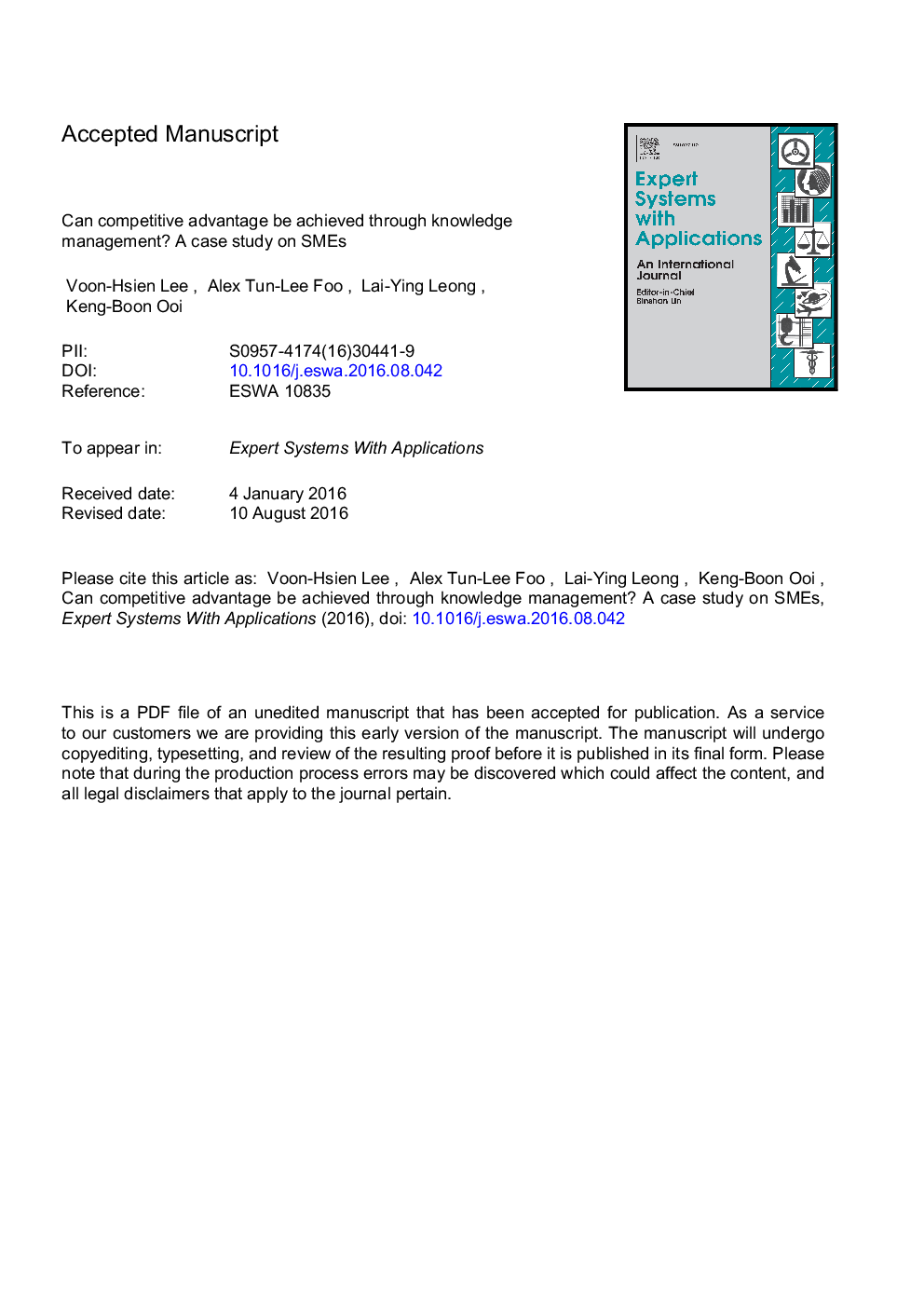| Article ID | Journal | Published Year | Pages | File Type |
|---|---|---|---|---|
| 6855438 | Expert Systems with Applications | 2016 | 44 Pages |
Abstract
Unlike most Knowledge Management (KM) studies which focus on large enterprises, this study focuses on SMEs in Malaysia which represent 99.2% of the total business establishments, the largest percentage of establishments in the country. The tridimensional relationship between KM practices, technological innovation (TI) and competitive advantage (CA) was examined in this case study. Survey approach was conducted to gather data from managers of the manufacturing SMEs and 195 samples were usable for statistical analysis using Partial-Least-Square Structural Equation Modeling (PLS-SEM)-Artificial Neural Network (ANN). The use of the combined PLS-SEM and ANN analysis can provide a significant methodological contribution and substantial impacts to the world of expert and intelligent systems and could be the next methodological research paradigm. Findings validated that KM has a direct positive and significant relation with both TI and CA; while TI positively and significantly affects CA. Most outstandingly, the mediating role of TI that connects KM and CA has been proven to be positive and significant. This paper utilizes samples that were collected from Malaysian SMEs only; therefore the findings cannot be generalized to represent the larger firms. Nevertheless, conclusions garnered from the present research can help both practitioners of the manufacturing SMEs and scholars in implementing the correct KM strategies, so that both TI and CA can be enhanced and improved.
Keywords
Related Topics
Physical Sciences and Engineering
Computer Science
Artificial Intelligence
Authors
Voon-Hsien Lee, Alex Tun-Lee Foo, Lai-Ying Leong, Keng-Boon Ooi,
